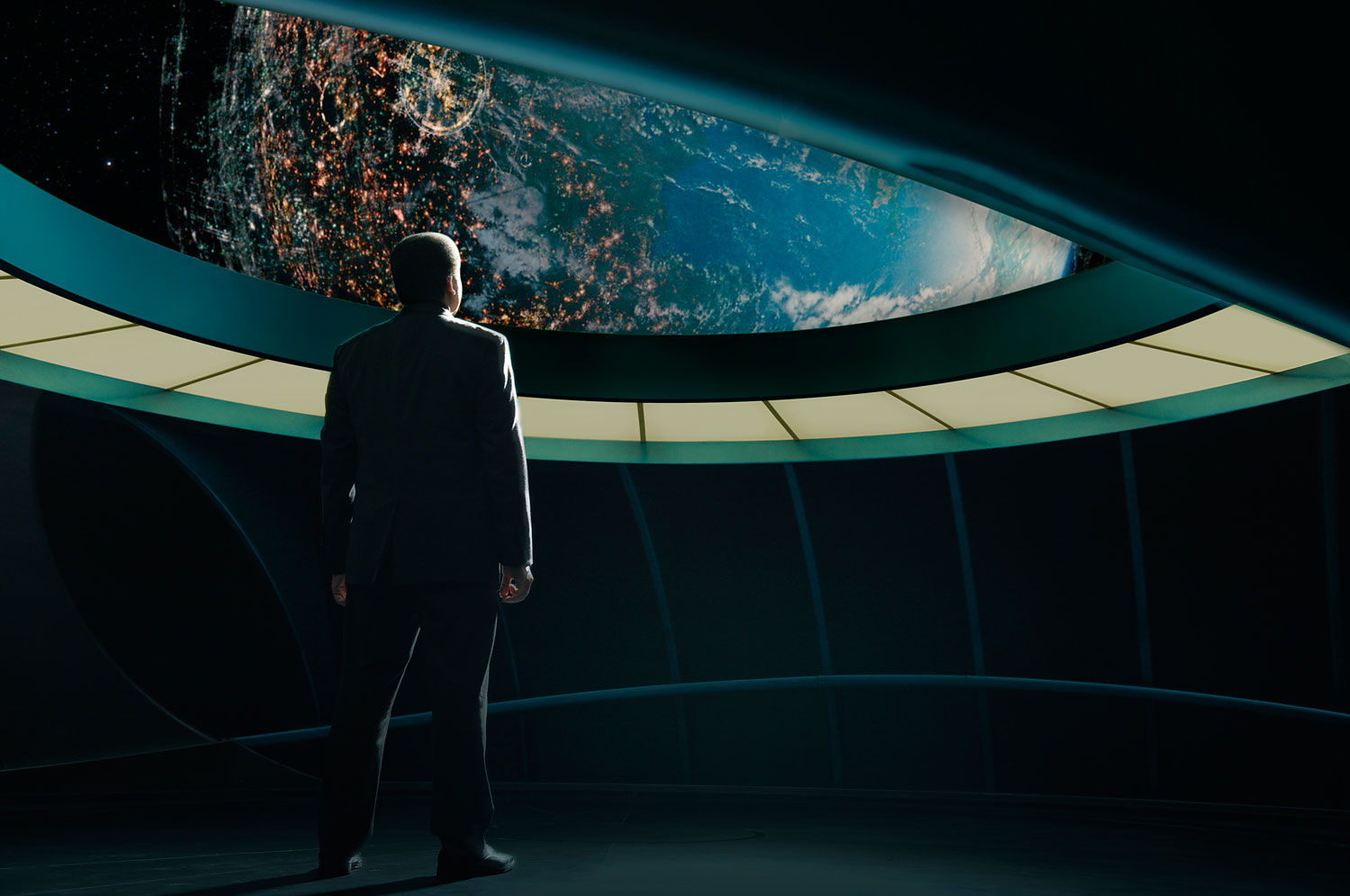
There is a new Seth MacFarlane show on Fox this Sunday. But if there was any doubt that Cosmos: A Spacetime Odyssey is no Family Guy, it is dispelled when the host references the planet Uranus and pronounces it “YOOR-inus.” This new version of Cosmos, which MacFarlane produced, is as earnest as Family Guy, American Dad, et al. are raunchy, but that doesn’t mean it’s not entertaining. It’s gorgeous, it’s absorbing, it’s impassioned, it’s awestruck and awe-inspiring.
But is it necessary? After all, the Carl Sagan original of this documentary guide to the universe is still out there. And it’s not as if the principles of science have drastically changed in a few decades. As new Cosmos host Neil DeGrasse Tyson cheerfully points out at one point, all of human history and knowledge is a few moments’ tick on the galactic calendar.
The docuseries’ debut episode engagingly makes the case for the reboot. First, it uses today’s technical firepower to bring its narrative alive. In a nod to Sagan’s original series, it places us on a CGI spaceship, whizzing through the universe as it visualizes Earth’s cosmic “address” (Earth, Solar System, Milky Way Galaxy, Local Group, Virgo Supercluster, Observable Universe). Elsewhere, it integrates playful digital tricks into Tyson’s narration–having an asteroid zip overhead as he walks through a forest and describes the extinction of the dinosaurs, placing him on a seashore as an animated amphibian saunters onto land. Imagination, Tyson says early on, is no substitute for the amazing reality of science, but they work (and play) together well here.
A second case for the remake–which the series itself lays between the lines but the producers, including Sagan’s widow, have stated flat-out–is the recent political-cultural attacks on science, be it climate change or the teaching of evolution in schools. The centerpiece of the first episode is a lengthy animated story about the persecution of the 16th-century monk and astronomer Giordano Bruno. The message is plain: there is a right side and a wrong side of intellectual history, and Cosmos is not afraid to say that science is on the right one.
(That Fox TV should broadcast such a thundering answer to the anti-science of some of the Fox News audiences’ favorite pundits may be ironic. But it’s no surprise to anyone who’s watched Fox’s primetime shows, from Married… With Children on down to MacFarlane’s sitcoms, from line up solidly on the other side of the culture war from cultural conservatives.)
But this Cosmos is not a lecture–either a political one or a college-class one. Tyson is as personable a host as you could want, and the end of the first episode makes his connection to the material personal: he recalls being invited, as a young student, to visit Sagan at his lab and eventually having the older scientist become his mentor. “Science,” Tyson says, “is a cooperative enterprise, spanning the generations. It’s the passing of a torch from teacher to student to teacher.”
It’s a sweet, personal moment, but it’s also something like a Cosmos manifesto. It positions science not just as a tool, not just a gee-whiz academic subject, but a cultural tradition like literature or religion–a community larger than any of its members, nurturing and defending a light that grows brighter each generation. Some people may look at Cosmos, with its image of Earth as a mote in time and space, as making mankind something small. Far from it: Cosmos argues, fiercely and with wonder, that we are part of something unimaginably great.
More Must-Reads from TIME
- Donald Trump Is TIME's 2024 Person of the Year
- Why We Chose Trump as Person of the Year
- Is Intermittent Fasting Good or Bad for You?
- The 100 Must-Read Books of 2024
- The 20 Best Christmas TV Episodes
- Column: If Optimism Feels Ridiculous Now, Try Hope
- The Future of Climate Action Is Trade Policy
- Merle Bombardieri Is Helping People Make the Baby Decision
Contact us at letters@time.com